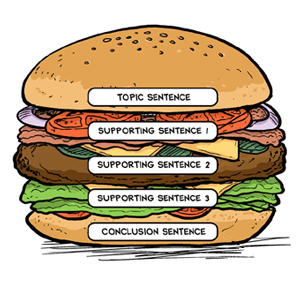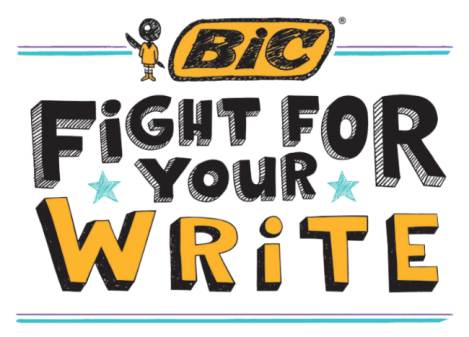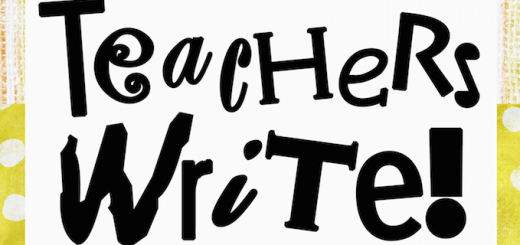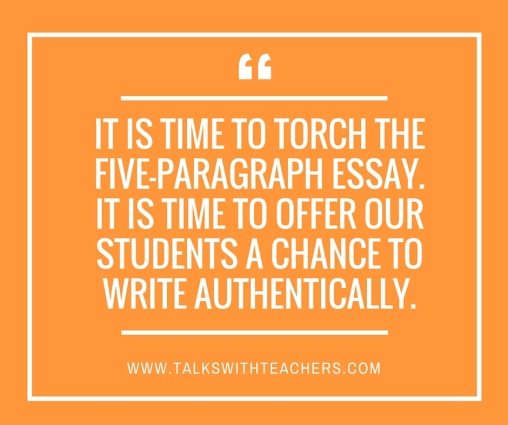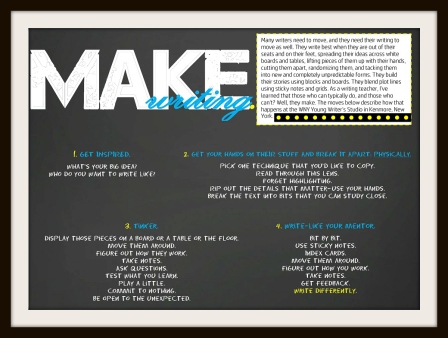
The materials for this week occupied both ends of the spectrum for me. I was dreadfully bored by the twenty-two page article Kathleen Yancey decided to write, where she touches on the three waves of writing regarding writing assessment. Not only did I have a deja vu moment because we read her article about historicizing writing that basically said the same thing, but I also lost all interest in that moment to continue. However, I thoroughly enjoyed the video about writing as making and so my post today with mostly center around that topic.
Although there were areas where the discussion dragged in the video because of weak internet connections and not all of the panel members being there consistently throughout, I felt the conversation about writing as making/making as writing was very successful. Elise offered some very insightful comments about the work that she does and the concept of writing as making in general that really set the tone for the entire discussion. I made many connections to the discussions that we have had in class as well, and I think that that says something about the teaching of writing and how it is incorporated into the classroom. It is good to know that these conversations are present in college classrooms before the material is even introduced.
I feel the message the movement is trying to convey (to refrain from solely consuming, and instead participate incarnation) resonates with me because it is a creed that I have had for my life since I was a young girl. I never really thought much about my consuming the books I was reading, but rather focused on how I could get to the point where I’d be the writer of them. I guess i was a few steps ahead then, but I am grateful for that mindset that I held because it got me to where I am now. The very idea that I have been repeating all semester of getting student’s interested in what they are producing and creating a context for them to feel like they’re voice/work matters is exactly what Andrew touched on. I was excited to be hearing my very words uttered in different words.
What I found very interesting was the segment that touched on identity. Elise made a note that a student’s writer identity is something that is gained over time and I absolutely agree. Usually, one does not come to terms with themselves as writers until much later in their writing lives. In their younger years, student writers are not that confident, but I think that in time that can be rectified. I really liked what Elise said about intelligence persistence through iteration. I tis important to get student writers into that frame of mind where they have a sort of respect and appreciation for the revision process. Celebrating the beginning stages of a work and its drafts are just as important as praise for the final result. Also, students are going to feel empowered and feel motivated to be themselves and grow authentically into their writing identity when given the opportunity and safe “space” to be able to. These communities and subcultures invented on the web and in areas like DIY.org etc. are where it starts.
